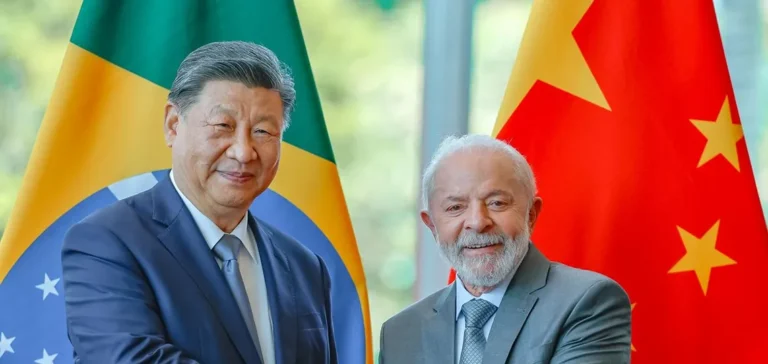The imposition of 50% tariffs by Washington is catalysing a strategic shift in Brazilian trade towards Asia and Europe. Trade data from 2024 show that China already absorbs 46% of Brazil’s crude oil exports and 71% of its iron ore, amounting to 276.79mn tonnes. This dependence will intensify mechanically as Brazilian exporters seek to offset losses in the US market. Brazilian negotiators immediately relaunched talks to finalise the European Union-Mercosur trade agreement, which has been on hold for two decades.
Acceleration of Sino-Brazilian integration
Brazil’s response to US tariffs involves deepening ties with Beijing. Chinese state-owned enterprises are preparing massive investments in Brazilian port and rail infrastructure to facilitate commodity exports. The planned railway linking agricultural production zones in Mato Grosso to Pacific ports via Peru is gaining urgency. This infrastructure would reduce logistics costs by 30% for exports to Asia.
Chinese refineries are already adapting their processes to maximise the use of heavy pre-salt Brazilian oil. Sinopec and PetroChina are negotiating long-term supply contracts exceeding 1mn barrels per day by 2027. The yuan is gaining ground as a settlement currency for these transactions, reducing dependence on the dollar. Currency swap agreements between central banks are easing this monetary transition.
Europe seizes the South American opportunity
Brussels sees the US-Brazil trade crisis as a window to conclude the EU-Mercosur agreement. European negotiators are softening their environmental demands, with priority shifting to access to Brazil’s critical resources. Germany and France, initially reluctant, are reassessing their stance in light of energy security and the supply of metals for the green transition. European car manufacturers view the Brazilian market as an alternative to China for their expansion.
European companies operating in Brazil anticipate competitiveness gains against their American rivals. Airbus could benefit indirectly if tensions affect Boeing sales, despite the exemption of Embraer. European energy groups such as Shell, TotalEnergies and Equinor are strengthening their positions in pre-salt exploration. According to projections by the European Chamber of Commerce, direct European investment in Brazil could double by 2027.
Reconfiguration of Latin American regional supply chains
Mexico and Argentina are emerging as re-export platforms to circumvent US tariffs. Mexican maquiladoras are preparing additional capacity to process semi-finished Brazilian products. This strategy exploits USMCA rules of origin, allowing duty-free access to the US market. Additional costs of 5-7% remain lower than the direct impact of 50% tariffs.
Argentina, sharing a land border with Brazil, is developing specialised free zones. Brazilian products undergo minimal transformation there to qualify as Argentine origin. The Milei government, supportive of free trade, is facilitating these arrangements despite historical competition with Brazil. Intra-Mercosur trade flows increased by 15% in the first half of 2025.
New emerging geoeconomic landscape
Economic projections suggest a structural transformation of hemispheric trade by 2030. The US share in Brazil’s foreign trade could fall from the current 15% to less than 10%. Meanwhile, China would consolidate its position as the leading trade partner, potentially exceeding 35% of the total. Europe would maintain its share at around 20%, but with a different composition, more focused on green technologies and services.
This reconfiguration is affecting US geopolitical influence in Latin America. Brazil, the region’s dominant economy, is bringing its neighbours into this reorientation. Chinese financial institutions are increasing infrastructure loans, gradually supplanting the Inter-American Development Bank. Dollarisation is receding as local currency compensation agreements multiply. Strategy analysts note that Trump tariffs could paradoxically accelerate the decline of US economic hegemony in what Washington has historically considered its backyard.






















